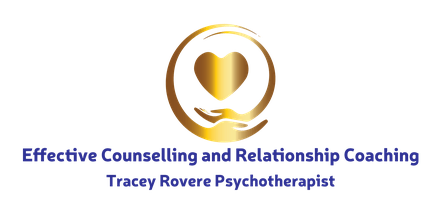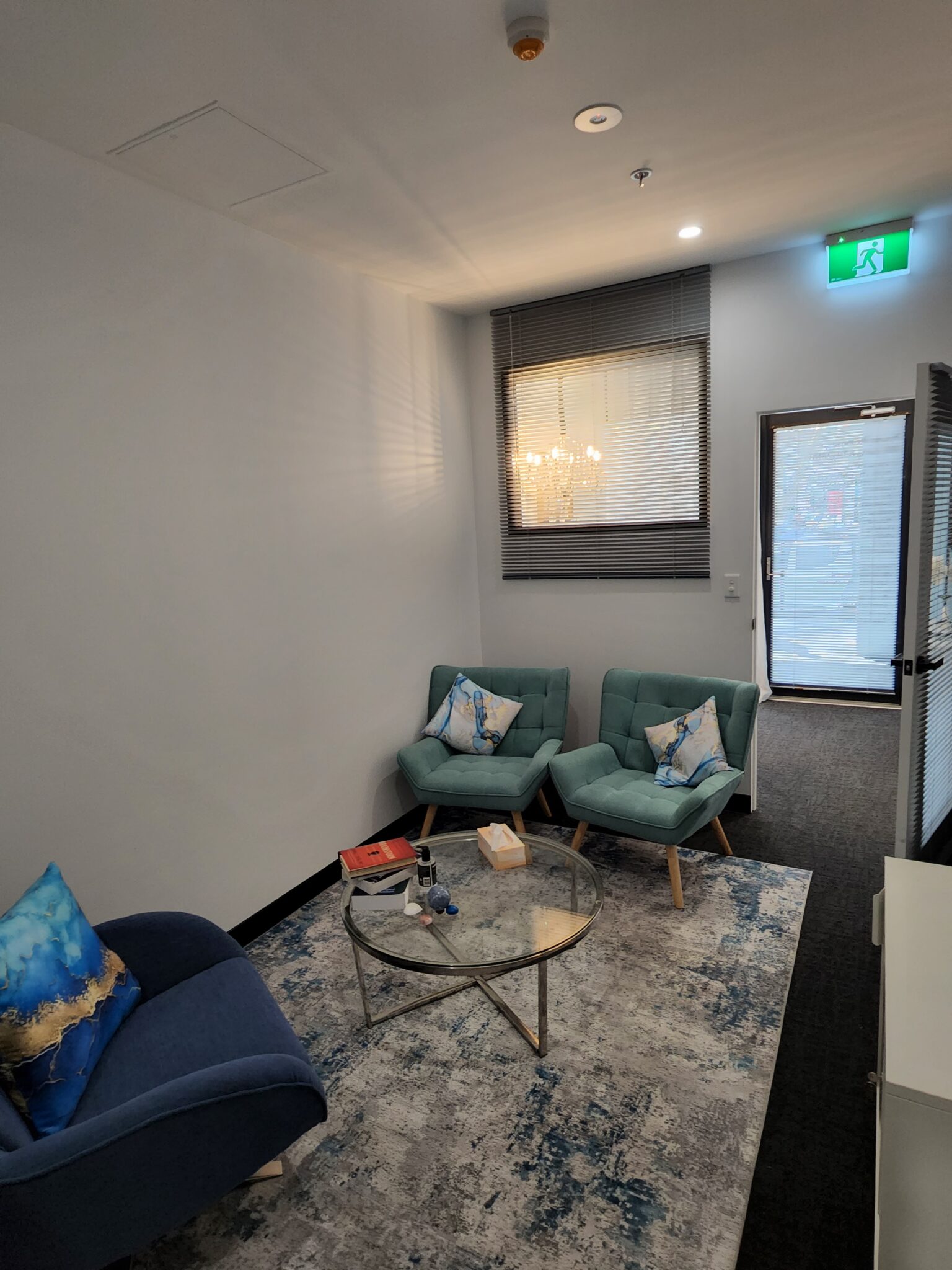What is Psychotherapy?
Psychotherapy, often called talk therapy, is where individuals work with a trained therapist to explore and address emotional, psychological, and behavioural challenges. It provides a supportive environment where clients can discuss their thoughts, feelings, and experiences to gain insight, develop coping strategies, and make positive changes in their lives.
Types of Psychotherapy
There are various approaches to psychotherapy, each tailored to different needs and conditions. Some of the most common types include:
- Cognitive Behavioural Therapy (CBT) – Focuses on identifying and changing negative thought patterns and behaviours.
- Psychodynamic Therapy – Explores unconscious processes and past experiences that shape current behaviours.
- Humanistic Therapy – Emphasises self-exploration, personal growth, and self-acceptance.
- Dialectical Behaviour Therapy (DBT) – A type of CBT designed to help individuals regulate emotions and improve relationships.
- Mindfulness-Based Therapy – Incorporates meditation and present-moment awareness to reduce stress and improve mental well-being.
- Interpersonal Therapy (IPT) – Focuses on improving communication and relationships to address emotional distress.
Who Can Benefit from Psychotherapy?
Psychotherapy is beneficial for individuals facing a wide range of issues, including:
- Anxiety and depression
- Trauma and PTSD
- Relationship difficulties
- Stress and burnout
- Self-esteem and confidence issues
- Behavioural challenges
- Coping with major life transitions (e.g., grief, career changes, divorce)
How Does Psychotherapy Work?
Psychotherapy sessions typically involve open conversations between the therapist and the client. The therapist helps the client explore thoughts, emotions, and behaviours while offering guidance and strategies for personal growth. Sessions may take place in individual, group, or family settings, depending on the needs of the client.
The therapeutic relationship is key to success in psychotherapy. A safe, non-judgmental space allows clients to be honest about their struggles and work toward meaningful change.
Conclusion
Psychotherapy is a valuable tool for enhancing mental and emotional well-being. Whether addressing specific mental health concerns or seeking personal growth, working with a qualified therapist can provide support, clarity, and empowerment. Seeking therapy is not a sign of weakness but rather a courageous step toward a healthier and more fulfilling life.
Many people will, at some point in their lives, find themselves in the role of a counsellor without having a true understanding of the concept of counselling or what the role of the professional counsellor entails.
There is a big difference between a professional counsellor and a person who uses some counselling skills as part of their role, for example, their role as a friend or colleague.
As a psychotherapist/counsellor, I am trained to be able to use a different range of counselling approaches with my clients in order to explore difficulties, which may be stressful and emotional. My aim is to help my clients to see things more clearly, possibly from a different viewpoint. This can enable my clients to focus on feelings, experiences or behaviour, with a goal of enabling a change.
Psychotherapy is similar to counselling, however, it aims to help the person with their emotions and feelings and to offer tools to help with current and future challenges.
Psychotherapy can help with addiction, depression, feeling overwhelmed, low self-esteem, relationship difficulties, anxiousness, panic attacks and just facing everyday life and challenges.
Counselling is a process that may be developed or intervening. I focus on my clients’ goals.
Counselling involves both choice and change
%22%20transform%3D%22translate(.9%20.9)%20scale(1.74219)%22%20fill-opacity%3D%22.5%22%3E%3Cellipse%20fill%3D%22%23131416%22%20rx%3D%221%22%20ry%3D%221%22%20transform%3D%22matrix(-2.5709%2051.60665%20-121.73072%20-6.06427%20176.6%20170.3)%22%2F%3E%3Cellipse%20fill%3D%22%23c2c0b8%22%20rx%3D%221%22%20ry%3D%221%22%20transform%3D%22rotate(-83.3%2081.2%20-52.1)%20scale(55.48495%20236.21239)%22%2F%3E%3Cellipse%20fill%3D%22%23dde6c0%22%20cx%3D%22200%22%20cy%3D%2212%22%20rx%3D%2227%22%20ry%3D%2244%22%2F%3E%3Cellipse%20fill%3D%22%23d5b24b%22%20rx%3D%221%22%20ry%3D%221%22%20transform%3D%22rotate(-62.9%20129.5%20-186.6)%20scale(25.12382%2038.12138)%22%2F%3E%3C%2Fg%3E%3C%2Fsvg%3E)
Confidentiality is paramount to my successful counselling.
Counselling services are available face to face in my practice, via telephone conference or Zoom. Whatever suits you.
Therapy can support you with-
Anger Management
Anxiety
Career Guidance
Depression
Divorce
Drug Use
%22%20transform%3D%22translate(1.2%201.2)%20scale(2.35547)%22%20fill-opacity%3D%22.5%22%3E%3Cellipse%20rx%3D%221%22%20ry%3D%221%22%20transform%3D%22matrix(-40.45176%201.90766%20-2.34652%20-49.75786%2032.2%20231)%22%2F%3E%3Cellipse%20fill%3D%22%239c9c9c%22%20rx%3D%221%22%20ry%3D%221%22%20transform%3D%22matrix(21.6138%2067.45263%20-181.89034%2058.28298%20106%2059.4)%22%2F%3E%3Cellipse%20fill%3D%22%23464646%22%20cx%3D%22127%22%20cy%3D%22216%22%20rx%3D%2283%22%20ry%3D%2283%22%2F%3E%3Cellipse%20fill%3D%22%23292929%22%20rx%3D%221%22%20ry%3D%221%22%20transform%3D%22matrix(-28.58747%20-14.04902%2014.363%20-29.22638%20165.3%20241.7)%22%2F%3E%3C%2Fg%3E%3C%2Fsvg%3E) Family Conflict
Family ConflictGambling
Infidelity
Life Transitions
Marital and Premarital
Self -Esteem
Stress
Substance Use, Alcohol Use
Women’s Issues
Coaching
Cognitive Behavioural (CBT)
Compassion Focused
Internal Family Systems (IFS)
Person-Centred
Positive Psychology
Solution Focused Brief (SFBT)
Somatic
Strength-Based
Trauma Focused
Emotionally focused therapy


